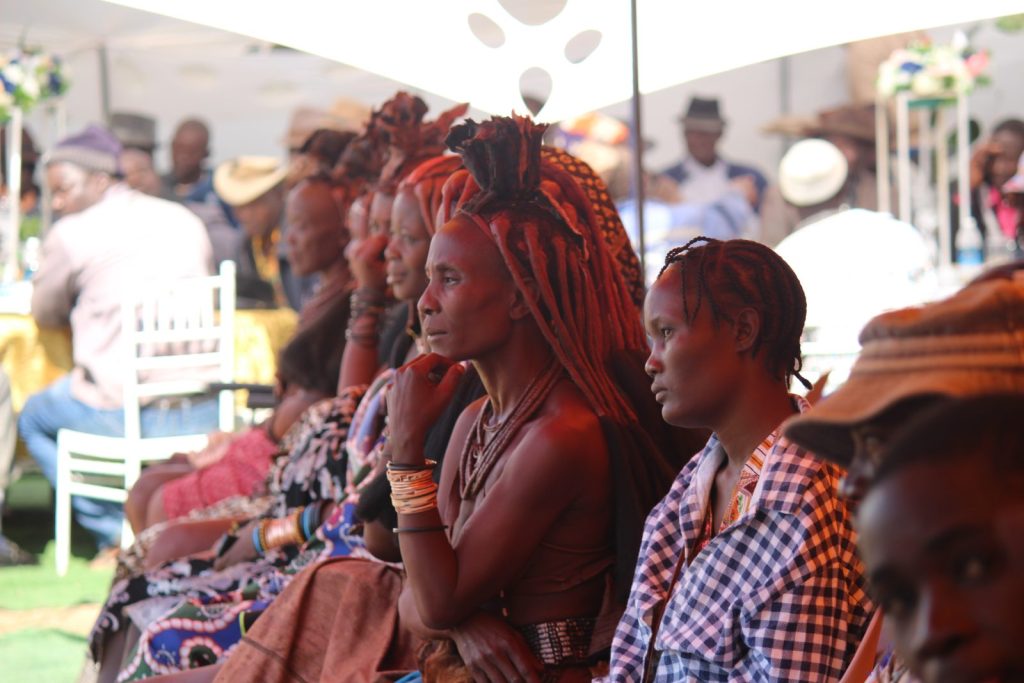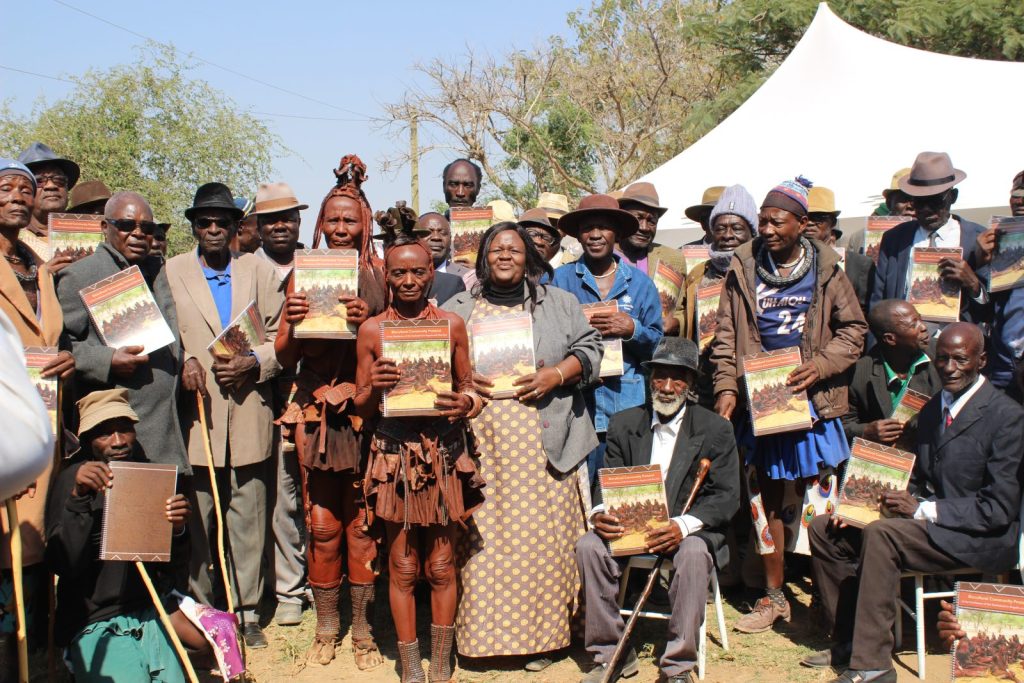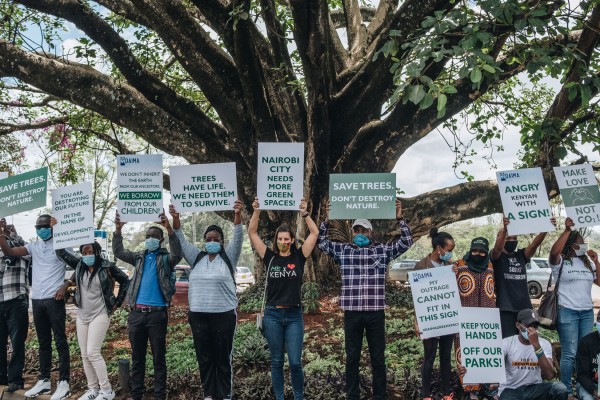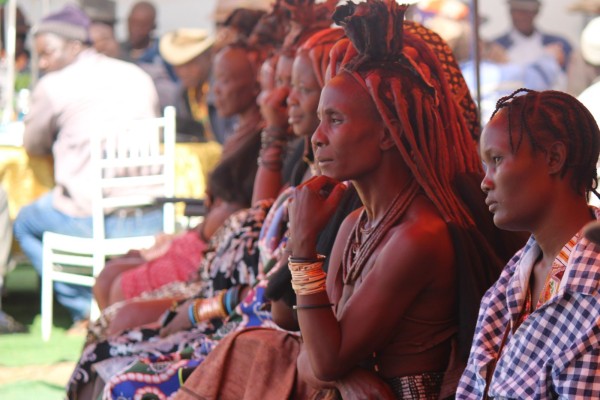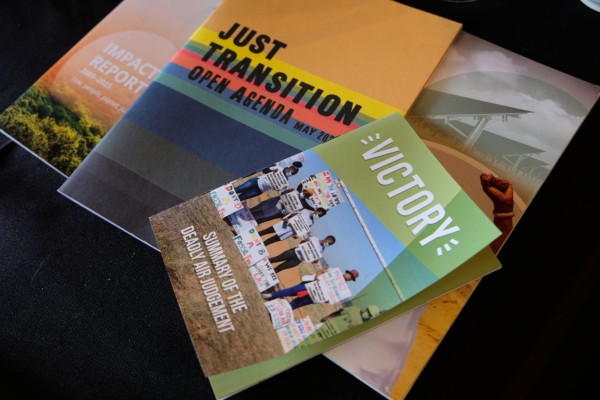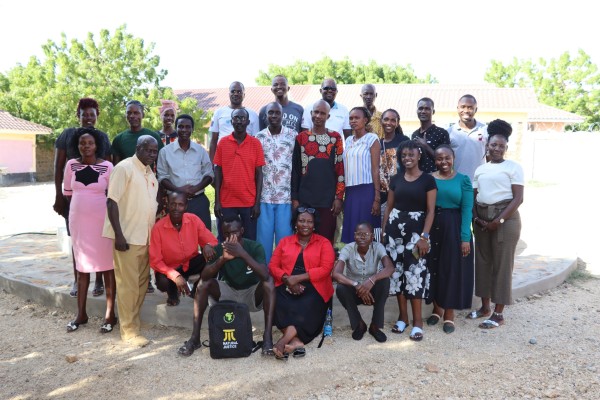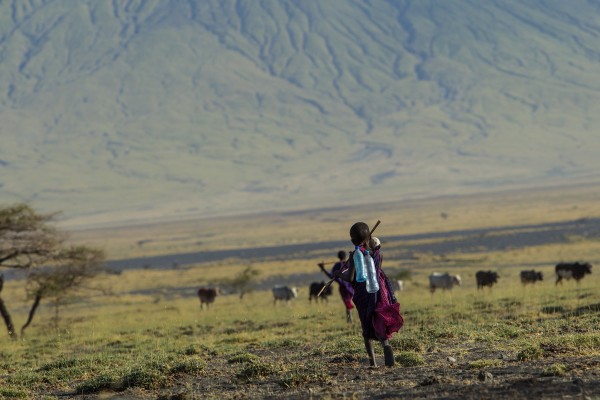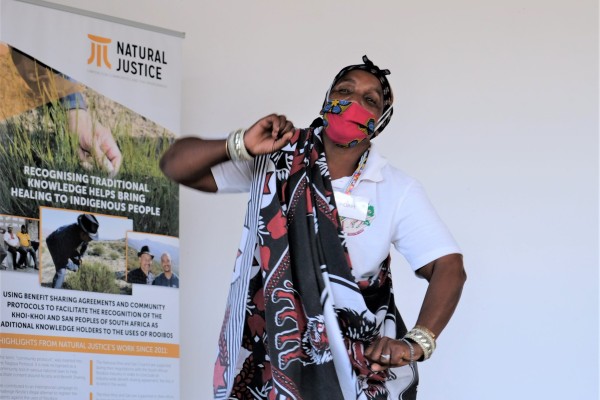The first written Biocultural Community Protocol (BCP) of the OvaHerero peoples of the Kaokoland in Namibia and Angola, capturing their history, cultural practices and traditions, was launched in Opuwo this week.
About 200 community members, from the Kunene region in Namibia and Cunene region in Angola arrived in Opuwo on Tuesday morning to mark the auspicious occasion. The BCP is a product of the culmination of four years of community engagements and interactions. It was supported by Natural Justice and International Rivers. A second event is planned in Windhoek later this week, which government officials and supporting civil society organisations are expected to attend.
The BCP is a community document created to provide a roadmap for understanding the history, the traditional protocols and cultural practices that have guided the sustainable use of natural resources and the Indigenous knowledge systems of the OvaHerero of the Kaokoland in Angola and Namibia. The document also sets out the community’s vision and details their current challenges. It will be used to safeguard their traditional knowledge and affirm and protect the rights of the OvaHerero of the Kaokoland in Namibia and Angola.
OvaHerero researcher, Alphons Kahuhu Koruhama said of the launch: “Today is a special day for us to see our dream of this document come to life. And it’s a historical moment to be the first indigenous community in Namibia to have developed a BCP.”
He said that over the years, research that has been conducted regarding these communities, have had no tangible results.
“This is the only research that has been conducted, by the community and for the community, that has seen any tangible results – in the form of a document, that we will be able to use in various ways, to address our challenges and to protect, promote and preserve our indigenous knowledge.”
Speaking in Otjiherero, with assistance of a translator, Motjinduika Mutambo, BCP custodian committee member from the Ombuku Community, said their communities faced many challenges.
“While the country is free, we have independence, our communities don’t have a system of governance. We don’t have protocols in writing – we don’t have a form of constitution to govern ourselves. For that reason, the other community members, the other traditions cultures different to ours in the same independent country, those cultures they ignore us, they don’t include us in anything.”
“That is why I have invited all stakeholders…so that today, on this Tuesday, they can hear what we have been preparing for us.”
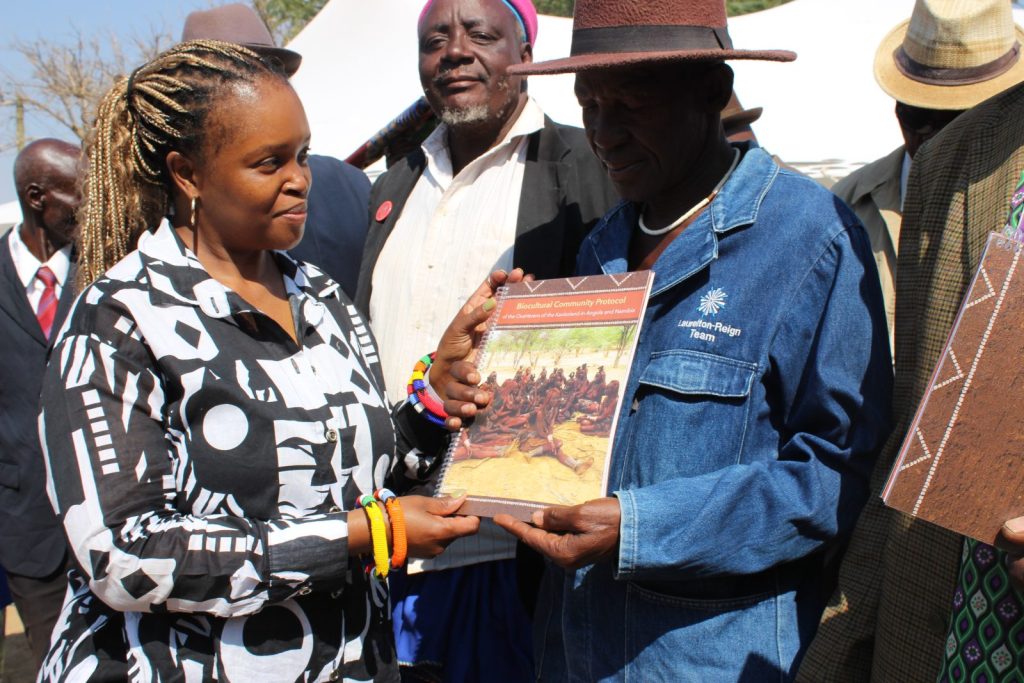
While supporting organisations, Natural Justice and International Rivers, assisted in the documenting and development of the BCP, the community engagement process embraced a participatory and culturally sensitive community-centered approach.
Speaking at the launch, Siziwe Mota from Internationals Rivers congratulated the communities and their representatives on the launch of the BCP.
“We as Africans are wonderful story tellers. We tell our stories through oral communication, but I think, in this case you have achieved something wonderful. Something great, in that you have been able to document your history, to document your practices – you’ve been able to document your way of life – how your governance works and how your decisions are taken. So congratulations to all of you…this is a communication to rest of the world of who you are as a people.”
She added: “I encourage you to use this protocol to guide you and to guide how your government, both Namibia and Angola, and how companies and corporations, are engaging with you, to guide you in making decisions over your land and over your lives.
Mota reiterated that the BCP emphasised the communities’ rights.
“You have a right to be informed, to be consulted and to consent to any decision related to your land and lives. With this document, you can decide on your own development. This will give your community a voice. This is a document for future generations, that young people, and your children and your children’s children will know about your culture and who you are as a people.”
Delme Cupido, from Natural Justice thanked the community and the committee involved, saying that BCP document represented the hard work they’ve done over the last years.
“The traditional leaders, the elders, the women and the youth, all of you have contributed to making this report a reality.”
The OvaHerero of the Kaokoland in Namibia and Angola, referred to by outsiders as the OvaHimba, are semi-nomadic pastoralists residing in Namibia and Angola, in the vicinity of the Kunene River. The Kunene River valley is the ancestral home of the OvaHerero who have lived there for more than 500 years.
This BCP provides clear terms for regulating access to their traditional knowledge and natural resources, whilst giving insight into important social and cultural values of the OvaHerero. It provides insights into how they have retained their way of life as successful semi-nomadic pastoralists, whose economic independence and intangible cultural heritage are directly linked to their territories.
As a community so deeply connected to the environment, the OvaHerero are additionally susceptible to the negative impacts of climate change. Furthermore, the OvaHerero’s cultural practices and the OtjiHerero language face challenges due to the gradual transition towards modern ways of living. The potential loss of the language equates to a loss of cultural narratives, oral traditions, and indigenous knowledge.
Uazepa Mbendura from Epupa Falls area, secretary of the BCP custodian committee, representing youth for the BCP, said: “For us, as youth, we really didn’t know very much about the culture. So, we had to learn a lot of things. Today, everyone will be receiving a copy of the document and by the time we age…at least we will have something about the culture written that might be preserved through this document.”
ENDS
You can find the BCP here:
Biocultural Community Protocol (BCP) of the OvaHerero of Kaokoland in Namibia and Angola
